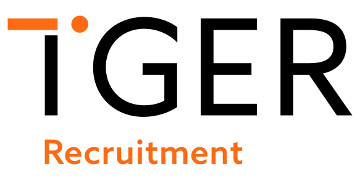The Covid-19 pandemic, alongside ongoing crises in healthcare, politics and connected to the climate, have had an acute impact on the physical and mental health of individuals in all corners of the world, making wellbeing support more significant than ever.
The call on global companies to implement global benefit practices – in addition to regional or market-specific ones – that are focused on supporting employees through the moments that are most important to them, is growing. We believe that it is now a strategic imperative for fostering unity, equality and coherence in global organisations.
Embrace culture
We believe it is possible to preserve the defining characteristics of each region while adopting a global approach to employee wellbeing. After all, the strength of global business lies in its ability to draw on the varied assets of the markets in which it operates.
Read more: Why cultural agility is the antidote to ineffective EDI programmes, part one
Rather than homogenising a diverse, international workforce, global policies can lay a foundation upon which localised benefits can be enhanced. Regional leaders can be given a robust, equal starting point for the support they provide to employees. From there, they can be empowered to engender an environment that staff can identify with, meaning that benefits remain aligned with diverse cultural expectations while maintaining a consistent standard.
Address differing regulations
Adhering to varying regional regulations and compliance requirements can be a daunting task for companies operating in different markets. A global benefits strategy can streamline compliance efforts by establishing standardised policies that align with an overarching legal framework.
This not only mitigates the risk of legal complications but also ensures that employees across different regions receive benefits in accordance with local laws. It means that all employees can benefit from a minimum standard of coverage, irrespective of where they live and work, which provides a first layer of protection for people who live in places where the legal requirements relating to HR policies are less developed.
Put staff on an equal footing
Ultimately, global minimum standard benefit offerings across core dimensions such as health protection and parental leave promote a sense of equality among employees. They signal a commitment to fairness and equity, and help business leaders foster a positive work environment that transcends geographical boundaries.
When workers perceive that they are being treated fairly, it contributes to higher job satisfaction and commitment. A unified approach to employee benefits can also lead to a stronger sense of belonging and shared purpose, fostering a more collaborative and engaged work culture, as well as solidifying the company’s employer brand.
Wellbeing comes first
Standout wellbeing policies no longer stop at physical healthcare. Rather, they recognise the ways that mental health conditions, caring for family members, domestic and sexual violence, fertility issues, menopause, andropause and a host of other complex experiences can shape employees’ lives, and their ability to perform at work.
In a world where the global workforce is more interconnected than ever, the need for a cohesive approach to core employee benefits in multinational companies cannot be overstated.
Tangible support that allows employees to balance work with their personal experiences and responsibilities feeds into employee productivity, and directly impacts talent retention and attraction.
The companies that address employee wellbeing with an holistic lens illustrate that care for people sits at their core. Those businesses exemplify their commitment to a unified, equitable and inclusive work environment.
Karima Silvent is chief human resources officer for AXA
This article was published in the March/April 2024 edition of HR magazine.
Subscribe today to have our latest articles delivered to your desk.










